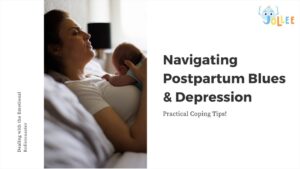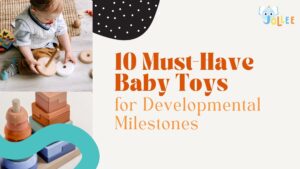Parents keep worrying about their child’s growth, development and education through different ages. In fact, the worry never goes away and parents try their best to help. But what if we told you that the best way for babies to learn and grow is to let them figure it out on their own? That is where Montessori Learning comes in. Let us explain.
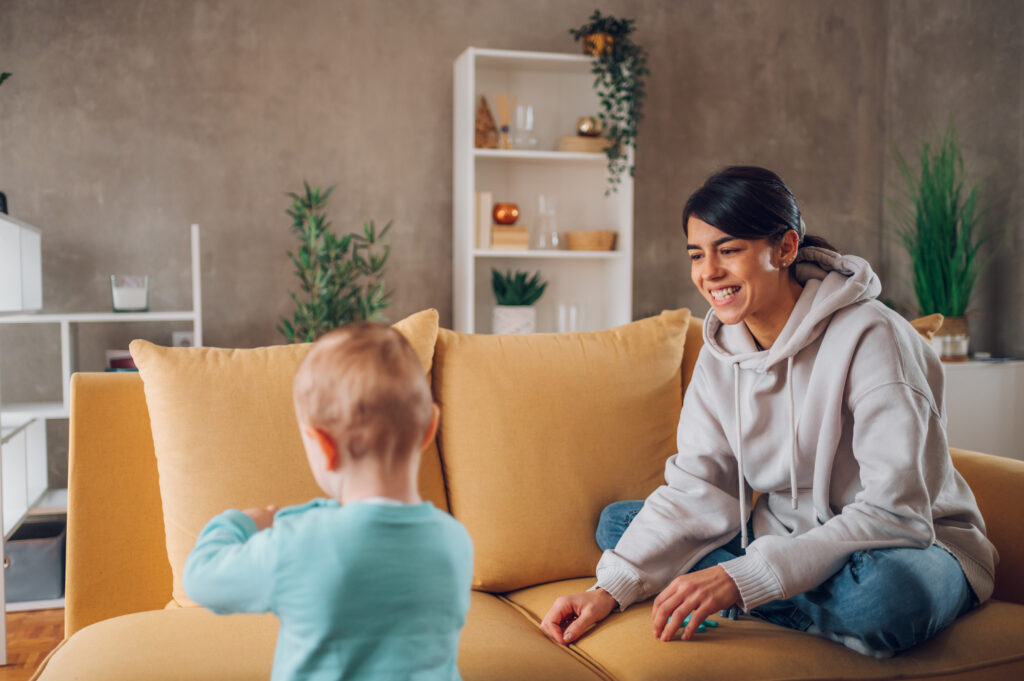
Did you know that children, as early as 5 to 6 months of age learn the most when they choose what to learn?
That’s right, most children right from the start learn by actively engaging themselves with their environment, observing, listening to sounds, and even making them. While certain tasks require an adult’s guidance and supervision primarily, children are independent learners. This unique approach to learning through self-directed activity and hands-on exploration of the surroundings is known as Montessori learning.
It is based on the belief that children have an innate desire to learn and that they will do so best when given the freedom to explore and discover on their own. Understandably, it is every parent’s instinct to impart knowledge or direct children through tasks and activities. However, the Montessori method advocates for self-exploration without any interference, obviously when it is safe to do so.
Let’s take a deep dive to understand what exactly is Montessori Education, what makes it special and how it helps the young ones.
What is Montessori Learning?
First of all, Montessori Education is all about following the child’s natural curiosity and interests. It was developed by Dr Maria Montessori over 100 years ago and focuses on a child’s creative independent choices.
One of the key principles of Montessori learning is that children learn best through hands-on, experiential activities. It allows them to learn at their own pace, and to focus on activities that interest them the most. Children can choose the activities and materials that they want to work with which fosters a complete engagement in learning and a profound understanding of the world around them. The best part is that Montessori principles can be applied right from the beginning.
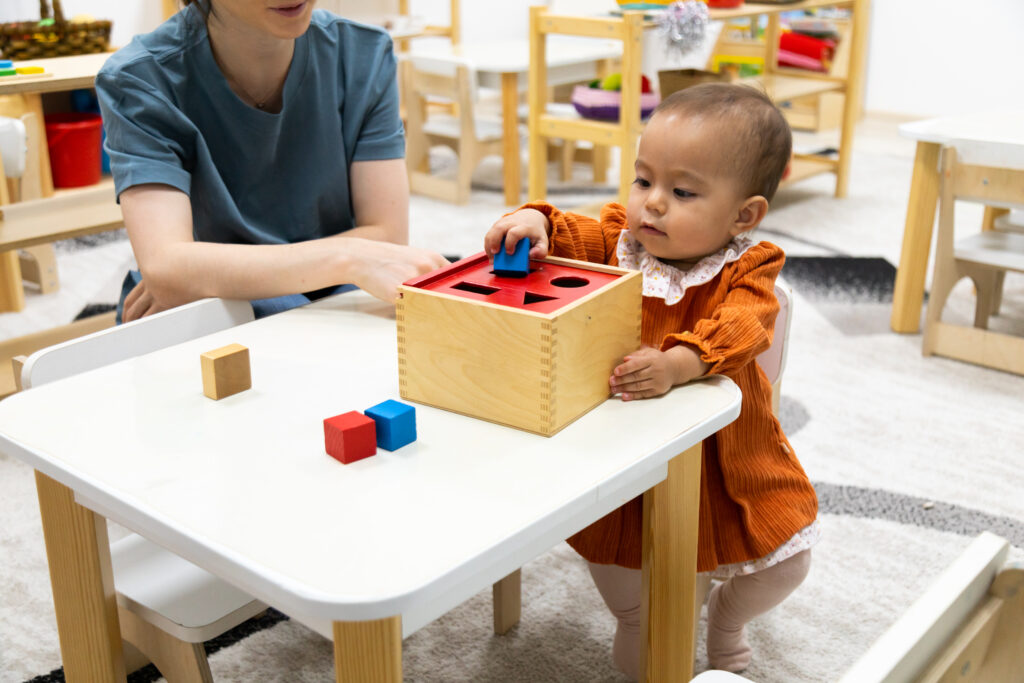
Jeff Bezos, an ardent proponent of Montessori education, himself attended a Montessori school as a child. In 2021, he launched a 2 billion dollar effort to help homeless families and low-income communities to start Montessori-inspired preschools.
https://www.livingmontessori.com/jeff-bezos-philanthropic-support-for-new-montessori-schools/
The Montessori approach is not a strict curriculum but rather a philosophy of education that emphasises on a child’s natural development. Hence, it is a good idea to observe the child’s interests, abilities and development level.
As recalled by Bezos’s mother in an interview with The Wall Street Journal that he (Jeff) would become, “so engrossed in his activities as a Montessori preschooler that his teachers would literally have to pick him up out of his chair to go to the next task.”
How does Montessori Education Work?
One of the great things about Montessori education is that it’s child-centred. This means that the needs and interests of the child are always the focus of the learning process.
Montessori teachers take the time to get to know each child as an individual. They try to create an environment that is tailored to their unique needs and abilities. This approach helps children feel valued and respected, which in turn helps them to develop a positive self-image and self-confidence
What does a Montessori Classroom look like?
The Montessori Classroom is designed to be a nurturing and stimulating environment.
- It’s filled with natural light, plants and beautiful materials that were carefully chosen to inspire curiosity and wonder.
- The classroom is designed to encourage independence and self-sufficiency.
- Children are encouraged to clean up after themselves, dress themselves and take care of their own needs.
Montessori schools and classrooms are available to children of all ages including primary, middle and high school. This continually develops the skills they need to become self-motivated, independent and successful learners.
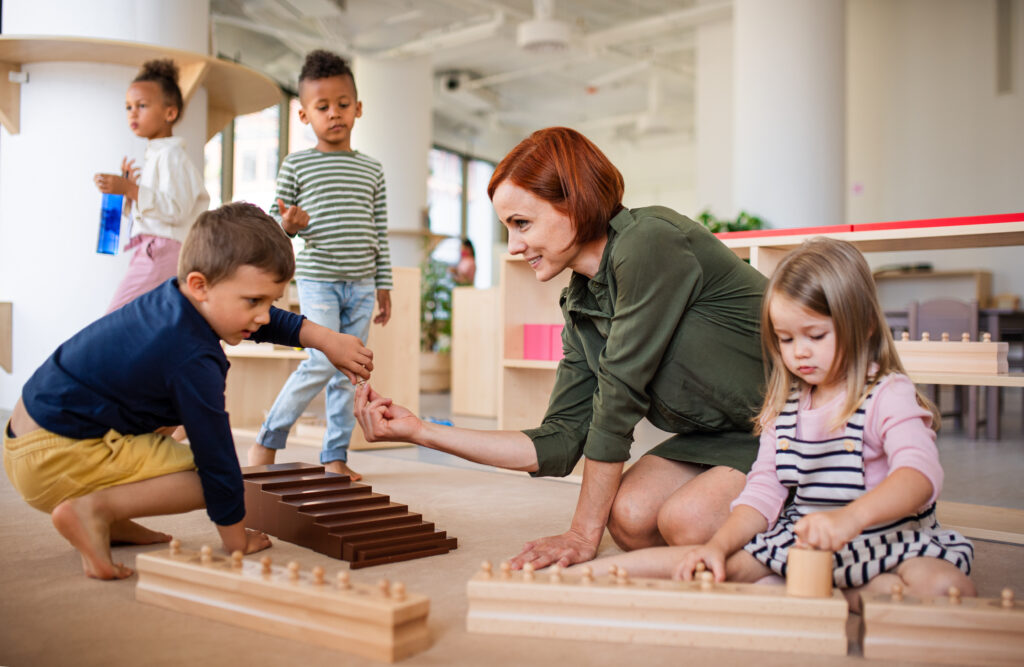
Learning through Play: The Montessori Way
Montessori education is not just about learning, it’s also about having fun and can begin as early as 6 months of age. Let us elaborate.
Children have sensitive periods of learning, where they are particularly receptive to certain types of knowledge and skills. These sensitive periods vary depending on the child’s age and development. For example, a 6-month-old may be in a sensitive period for exploring their environment. They would benefit from Montessori toys that are brightly coloured, textured and easy to grip.
Whereas, a 3-year-old child may be in a sensitive period for learning about numbers and counting. Therefore, they would benefit from Montessori toys that teach those concepts.
You can also check out Jollee’s entire range of Montessori-based toys that help children grow and develop in a fun way.
It’s important to note that the Montessori method is not a one-size fits all approach. The toy selection should be appropriate for the child’s age and development. For instance, a toy that is perfect for a 3-year-old may not be challenging enough for a 5-year-old.
Jollee’s Expert Blog on Stacker Toys for little ones: https://www.blog.jollee.in/problem-solving-stacking-toys/?utm_campaign=Blog&utm_medium=Blogpage&utm_source=Organic
Montessori Toys: A Playful Progress for Children
Montessori Toys are not just ordinary toys, they are specially designed to support the Montessori method of learning. They are designed to be hands-on, interactive and appealing to children’s senses. Montessori toys encourage children to explore and discover the world around them. But what exactly makes Montessori toys so special and how can they help children to learn and grow?
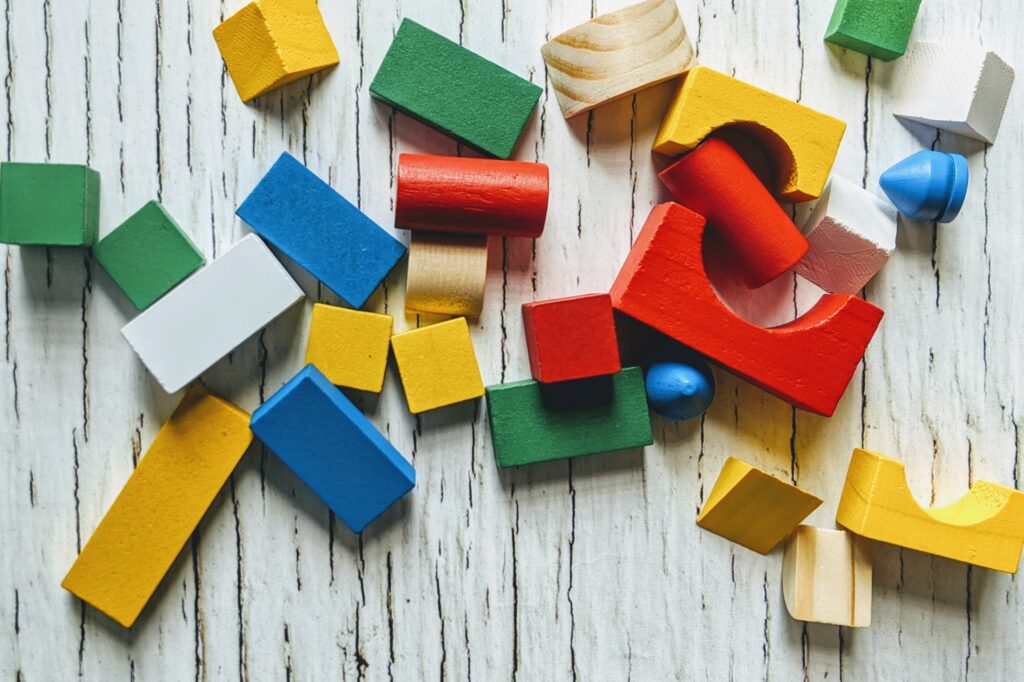
One of the most important things about Montessori toys is that they are designed to be self-correcting. This means that children can learn from their mistakes and figure things out on their own.
For example, a Montessori toy that teaches children about shapes and colours may have different shaped blocks that fit into corresponding shaped holes. If a child tries to put a square block into a round hole, they will quickly realize that it doesn’t fit. They’ll try a different shape allowing children to learn through trial and error and to develop problem-solving skills.
Another great thing about Montessori toys is that they are designed to be open-ended. They can be used in many different ways and children can continue to discover new things about them as they play.
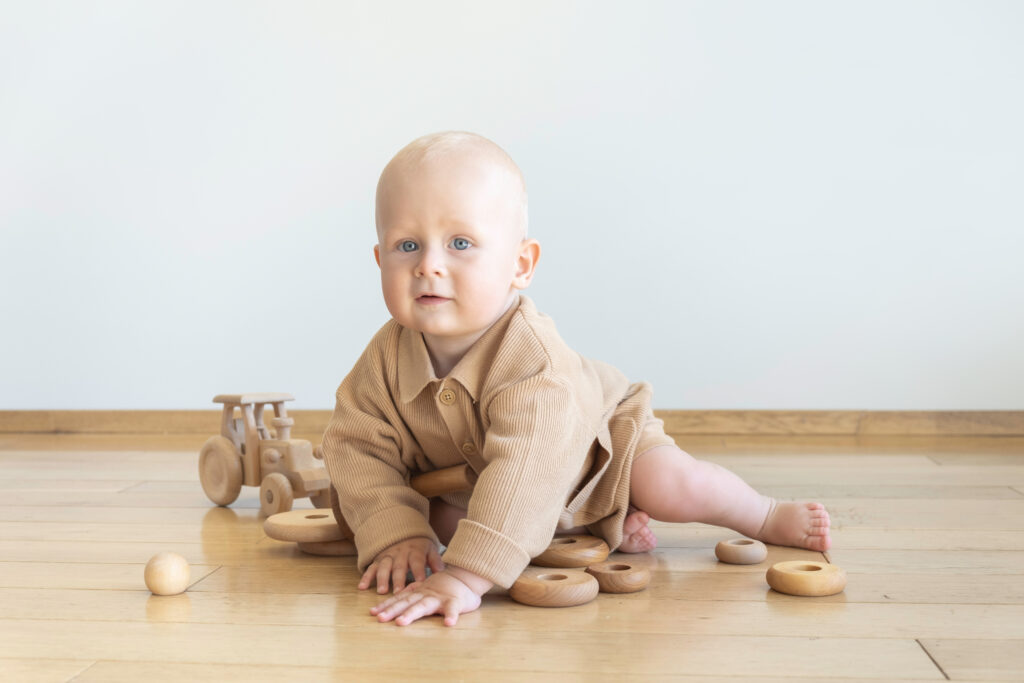
But perhaps, the best part about Montessori toys is that they are not just Educational Tools but also Playthings that children will enjoy and cherish. So, next time you’re looking for a toy for a child, consider a Montessori toy. It will be a fun and engaging way for them to learn and grow.
Check out Jollee’s Collection of Toys: jollee.in/product-listing?Categories=a1b82bbb-8188-4a5f-a5cc-ccd8ba4e6d2d&Sub+Categories=ec985d91-5e8c-49e9-a1dd-f6e016878146&sort=Default?utm_campaign=Blog&utm_medium=Blogpage&utm_source=Organic
Benefits and Limitations
We have discovered how beneficial Montessori education can be for children of all ages but to create a clearer picture we must also understand that there are certain limitations with this method.
- Limited availability: Montessori schools can be hard to find and may not be available in all areas.
- Cost: Montessori education can be more expensive than traditional public education.
- Lack of standardisation: Since Montessori is not a standardised curriculum, the quality of education can vary greatly between schools and programs.
- Limited focus on traditional subjects: Some people argue that Montessori education does not place enough emphasis on traditional subjects such as maths and reading.
- Requires trained teachers: Montessori education requires teachers who have been specifically trained in the Montessori method, which may be difficult to find in some areas.
Finally, even with the limitations, The Montessori Method is a fun and effective way for children to learn and grow. It allows them to follow their natural instincts, curiosity and interests. It makes them feel valued and respected and develops the skills they need to become self-motivated and independent learners.
It’s a method that helps children to develop a love for knowledge and learning that will stay with them for a lifetime.



